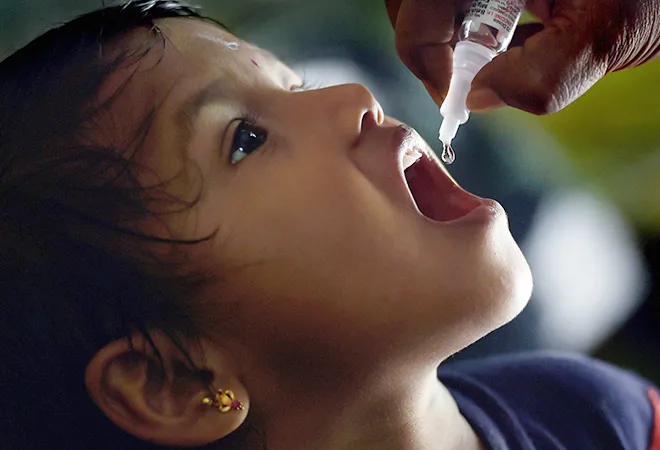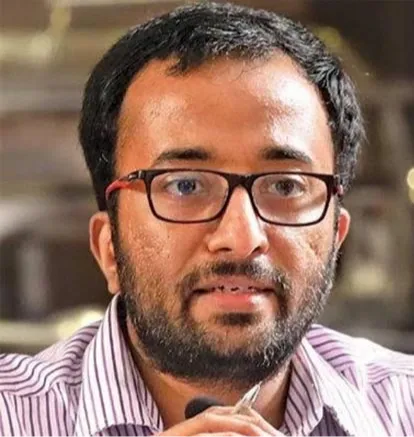
With the National Health Mission (NHM) top leadership spearheading the National Health Protection Scheme (NHPS) within the Ayushman Bharat programme, India has moved one more step closer to successfully transcending the so called supply-side versus demand-side dualism in the health sector.
It is by now very clear that India will be following a two-pronged approach to achieve Universal Health Care (UHC), with NHM and NHPS playing equally important, interlinked roles. It is a historic opportunity for India to expand healthcare coverage to geographic regions and population groups yet uncovered, and multi-stakeholder engagement is crucial, given the diversity of the country.
It is disconcerting, for the same reason, to learn that for the first time in more than ten years, a meeting of the Mission Steering Group (MSG) of the National Health Mission (NHM — earlier NRHM) was conducted with zero participation of technical experts. New members are not appointed yet, a year after the term of the previous set of technical experts ended. The change in composition of the MSG is not reflected on the NHM website yet, and the names of the ten expert members are still not removed.
It is disconcerting to learn that for the first time in more than ten years, a meeting of the Mission Steering Group of the National Health Mission was conducted with zero participation of technical experts.
The Mission Steering Group (MSG) has been the apex policy making and steering body constituted under National Health Mission (NHM). MSG provides broad policy direction to NHM, guides the main programme and oversees governance for the health Sector. It also has an advisory role vis-à-vis the Empowered Programme Committee of NHM in policies and operation. Approval of the MSG is required for new initiatives within NHM. It also forms the top layer of NHM responsible for planning and disbursing funds with equivalent State and District Health Missions below.
Eleven ministers from the Health and allied ministries are its members along with the Niti Aayog CEO. The rest of the members consist of Secretaries of all major ministries linked to health policy implementation both directly and indirectly, four Secretaries from the High Focus States, as well as ten eminent public health professionals from across the country as non-official members selected based on their expertise.
The National Consultation on Transitioning from MDGs to SDGs had assigned the Mission Steering Group on NHM to:
- Set the vision, priorities and milestones for rollout, implementation and M&E of SDG-3 agenda;
- Provide oversight and conduct periodic review of the SDG implementation; and
- Engage with other relevant ministries for inter-sectoral convergent action on health determinants.
The consultation also recommended establishing a National Task Force on SDG-3 that will work under the guidance of the MSG to support the states with rollout of the SDG health agenda and to set up periodic review mechanisms. Given its vast mandate, having technical experts well versed in the regional realities of India’s health system on board the MSG is key.
It is mandated that the Secretaries (Health and Family Welfare) of High Focus States shall be nominated as members of the MSG for a period of one year each by rotation, by the Government of India. The nominated Public Health Professionals will hold office for a term of two years, and would be eligible for re-nomination by the Government. The first meeting of the steering group under NHM ( previously NRHM) was held on the 6th December, 2013.
It is mandated that the Secretaries (Health and Family Welfare) of High Focus States shall be nominated as members of the MSG for a period of one year each by rotation, by the Government of India.
The transition between NRHM and NHM saw the reconstitution of the ten external members, who were public health professionals serving public and private sectors in different capacities. A new set of ten members were nominated by the government. It is well accepted that all through the MSG meetings of both NRHM and NHM, these members have actively participated in the deliberations and their technical inputs have been of immense help in decision-making.
However, this year’s MSG held in February was the first one in which no external expert participated. It is learnt that after the previous meeting of the MSG in January 2017, at least some of the non-official members were made to know that their tenure was over. Even after a year, new members have not been appointed, and the latest MSG meeting was — other than a few ministers who participated- was an all-bureaucrat affair with no external expert invited in as non-official member.
This is strange, given the fact that MSG has been praised by informed commentators for the consolidation of governance and robust technical leadership it achieved at the public health policy and programme management level. Much of this has been the result of directly engaging technical experts as part of the deliberations as a look at the minutes of MSG meetings over the years will demonstrate.
In this era of exciting developments in the health sector, where NHM is going to be the mainstay of the Ayushman Bharat through the NHPS initiative which will take India closer to the UHC ideal, health policy is too important to be left to bureaucrats alone. As a country with a glowing tradition of democratic policy making with multistakeholder participation, new non-official members of the MSG will need to be appointed at the earliest.
The views expressed above belong to the author(s). ORF research and analyses now available on Telegram! Click here to access our curated content — blogs, longforms and interviews.




 PREV
PREV


